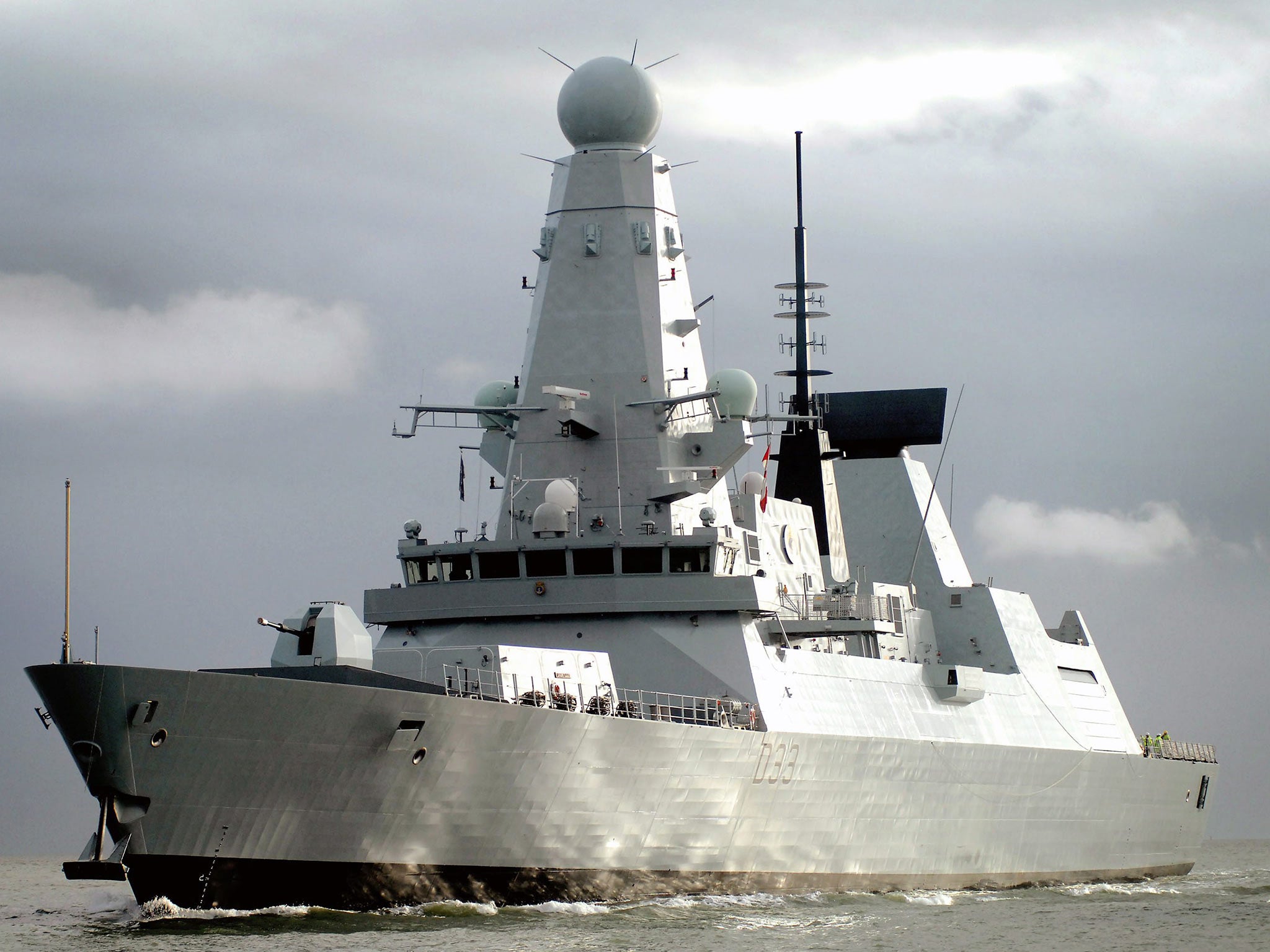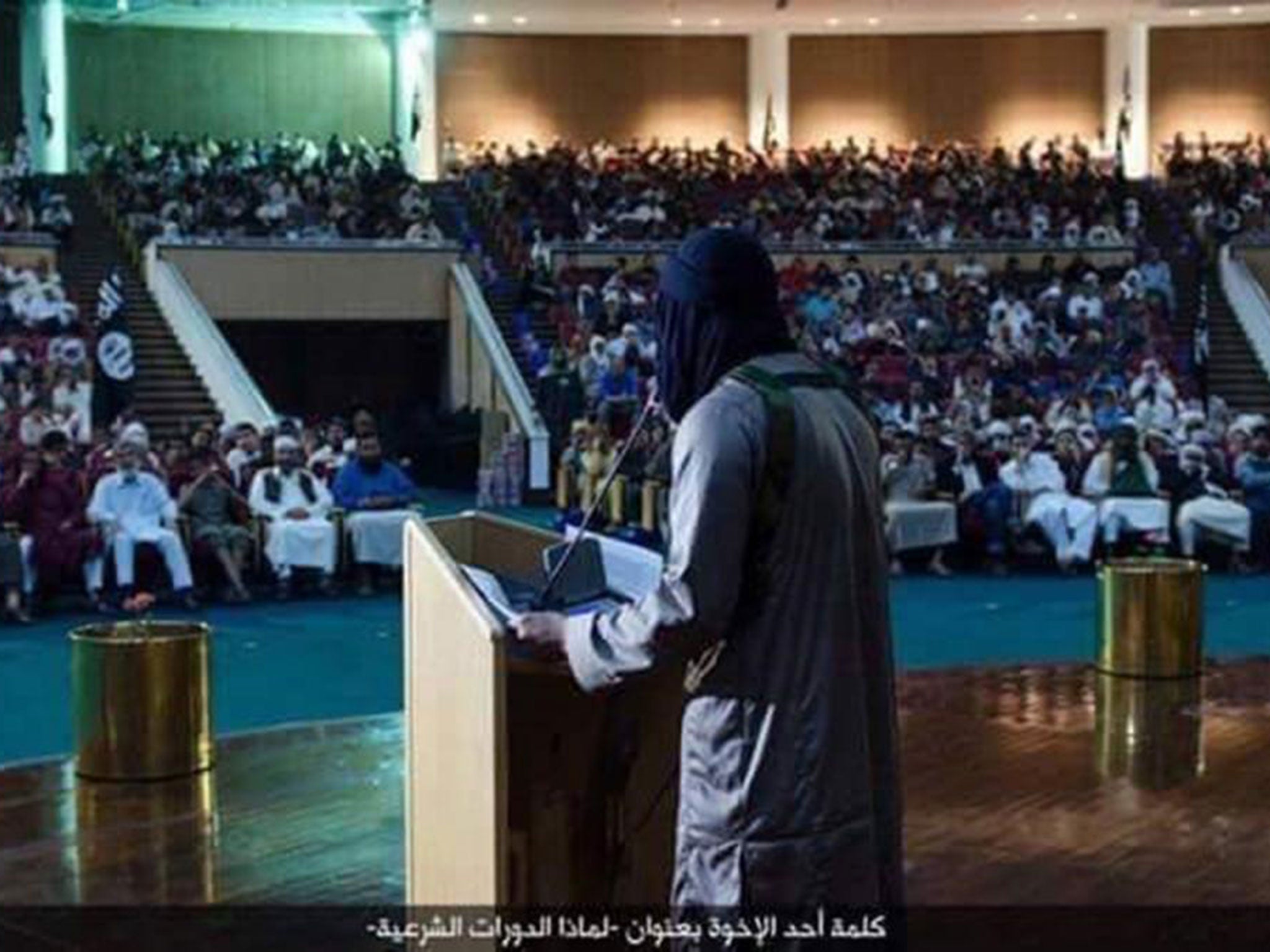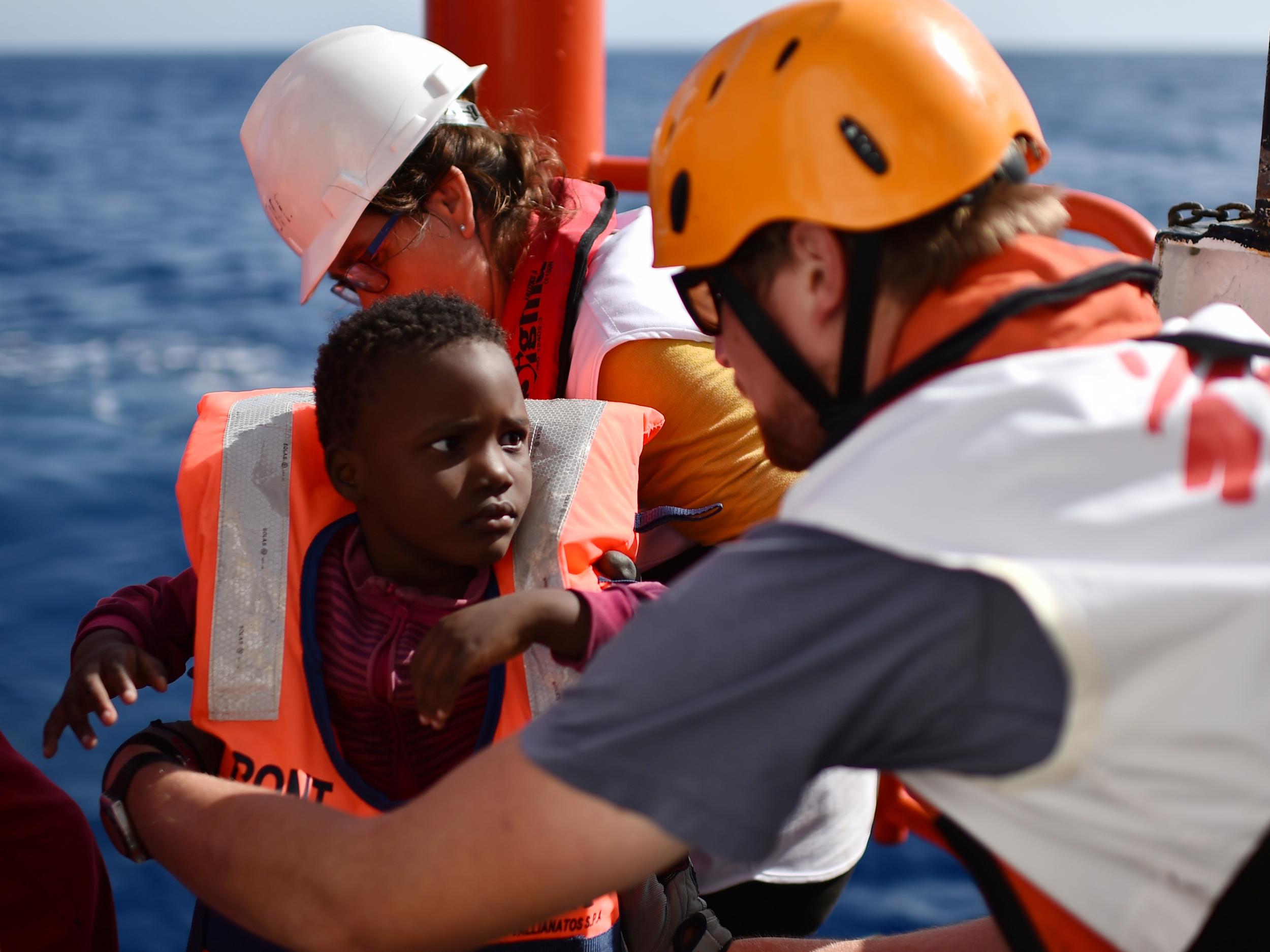UK to send warship to Mediterranean to stop refugee boats and cut off Isis arms supplies in Libya
Libya requested assistance for its coastguard as efforts continue to stop people smugglers sending boats towards Italy

Your support helps us to tell the story
From reproductive rights to climate change to Big Tech, The Independent is on the ground when the story is developing. Whether it's investigating the financials of Elon Musk's pro-Trump PAC or producing our latest documentary, 'The A Word', which shines a light on the American women fighting for reproductive rights, we know how important it is to parse out the facts from the messaging.
At such a critical moment in US history, we need reporters on the ground. Your donation allows us to keep sending journalists to speak to both sides of the story.
The Independent is trusted by Americans across the entire political spectrum. And unlike many other quality news outlets, we choose not to lock Americans out of our reporting and analysis with paywalls. We believe quality journalism should be available to everyone, paid for by those who can afford it.
Your support makes all the difference.Britain is to send a warship to the Mediterranean to combat people smuggling as thousands of refugees and migrants continue to cross to Italy.
Speaking at the close of the G7 summit in Japan, David Cameron praised the impact of the controversial EU-Turkey agreement seeing asylum seekers detained in Greece and deported if their applications fail.
“In the eastern Mediterranean, on average nearly 2,000 people arrived this way per day before the EU-Turkey deal was signed,” he said.
“Since then, it’s fewer than 100. It’s still fragile agreement – but returning people works.
“Now we need to do the same with the central Mediterranean route.”
More than 37,000 migrants have been intercepted between North Africa and Europe so far this year and taken to Italian ports, with 3,000 landing on Thursday alone.
At least 1,500 people have died in in treacherous sea crossings, including up to 100 feared to have drowned in two disasters in recent days.
The Prime Minister did not mention humanitarian efforts specifically in his speech, saying the UK would be boosting the capability of coastguards in Libya, where the vast majority of smugglers’ ships are launched towards Italy.
“Once the relevant permissions and UN Security Council Resolution are in place, I will deploy a naval warship to the south central Mediterranean to combat arms trafficking in the region,” he said.
“Together these developments will help stabilise Libya, secure its coast and tackle the migration crisis.”
Mr Cameron said Britain would continue to help refugees, without specifying how, but called for stronger borders and the “means to return those who attempt the dangerous crossing”.
The UK deployed four military planners this week to the Rome HQ of the European Union's Operation Sophia mission to tackle people-trafficking in the central Mediterranean.
The newly established Government of National Accord (GNA) in Tripoli had already requested support from the UK in improving coastguard operations and there are reports of arms left over from the Libyan civil war making their way to Europe, while foreign weapons shipments are being sent to Isis territories along the coast near Sirte.

A spokesperson at Downing Street was unable to say what type of Royal Navy ship would be sent to join four UK vessels already involved in the EU mission or specify what actions it would undertake.
Some of the deadliest refugee boat disasters have happened as larger ships approach, with those on board rushing frequently running to one side and capsizing their vessel, and it was unclear what – if any – precautions would be taken to avoid further deaths upon sight of the Navy ship.
There is evidence that smugglers are taking advantage of regulations limiting Operation Sophia to international waters, sending boats out with enough fuel to get them out of Libyan territory and leaving them to drift until being picked up by EU ships.
The majority of asylum seekers currently arriving in Italy are from sub-Saharan Africa, with the largest group from Nigeria, at 15 per cent, followed by Gambia, Somalia, the Ivory Coast, Eritrea, Guinea and Senegal.

Save the Children, which is among the humanitarian organisations working with refugees after their arrival, warned that numbers would only rise over the summer.
A spokesperson said: “The deteriorating security situation inside Libya and the warmer conditions are two worrying indicators that the Libya-Italy smuggling route may become busy again, this route being one of the deadliest crossings because the rickety boats are at sea for so long – up to three days or even a week or 12 days has been reported to our teams at the ports.”
Italy is not subject to the terms of the EU deal with Turkey, which sees any refugees arriving clandestinely in Greece detained and deported back across the Aegean if their asylum applications fail.
Border closures through the Western Balkans route formerly used by migrants journeying into Europe have left thousands stranded across the continent.
Join our commenting forum
Join thought-provoking conversations, follow other Independent readers and see their replies
Comments